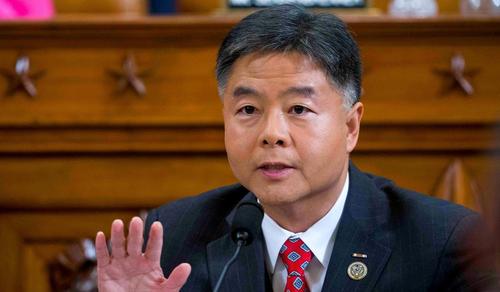Feature your business, services, products, events & news. Submit Website.
Breaking Top Featured Content:
In Lieu Of Ethics: Democratic Assistant Whip Accused Of Giving Campaign Funds To Stanford Before Admission Of His Son
After the recent admissions scandal at top California schools (including Stanford), the gifts of Rep. Ted Lieu (D., Cal.) would immediately raise concerns over the same type of academic pay-to-play pattern. However, the $51,046 to his alma mater, Stanford University, was not his own money but his campaign funds.
According to reports, the money was transferred just before his son was admitted to the highly competitive university. What is most shocking is that taking money for a campaign and then giving it to a school is not itself illegal. However, Lieu could still face some serious questions even under a law designed by Congress to allow what most donors would view as a bait-and-switch.
Lieu is the assistant Whip for the House Democrats and is an American success story. Born in Taiwan, Lieu became a citizen, attended Stanford, and then was an outstanding student at Georgetown Law Journal. He then held state and federal office. He is one of the most effective members on television.
The political contributions are subject to rules written by the people who collect them.
Not surprisingly, the rules are written to allow members to raise money ostensibly for their own campaigns and then transfer the funds to others. They also are used for expenses that seem overtly personal and excessive.
Take Eric Swalwell who recently was found to be spending his campaign funds on booze, limos, and rooms at the Ritz-Carlton (where his wife worked). Other members like former Rep. Aaron Schock (R., III.) were accused of using public funds (from his official office account) for excessive decorations of his office. The Schock story however received far more media coverage and he was later the subject of a prosecution. Those criminal charges were later dropped.
That brings us to the current scandal. Federal Election Commission (FEC) filings show that Lieu gave $51,046 to Stanford between February 2016 and June 2018. As the other admissions scandal was raging, Lieu was transferring political donations to the school that his son would be applying to for college.
Most citizens would find this use of the donations outrageous and wrong. However, Lieu can claim that they are lawful and many voters are so tied up in this fierce partisan period that they will not call Lieu to account since he is a Democratic leader in Congress. Yet, some may ask why the heavily endowed university with such an affluent alumni base should receive tens of thousands of their donations as opposed to campaigns to protect the House majority or social justice programs.
Under the FEC rules, it may first appear that this is clearly a violation:
Using campaign funds for personal use is prohibited.
Commission regulations provide a test, called the “irrespective test,” to differentiate legitimate campaign and officeholder expenses from personal expenses. Under the “irrespective test,” personal use is any use of funds in a campaign account of a candidate (or former candidate) to fulfill a commitment, obligation or expense of any person that would exist irrespective of the candidate’s campaign or responsibilities as a federal officeholder.
More simply, if the expense would exist even in the absence of the candidacy or even if the officeholder were not in office, then the personal use ban applies.
Conversely, any expense that results from campaign or officeholder activity falls outside the personal use ban.
A donation to Stanford would seem an expense that would exist “in the absence of the candidacy or even if the officeholder were not in office.” Then however comes the loophole that you could drive a semi truck filled with cash through:
Spending that isn’t personal use
In addition to the “irrespective test,” Commission regulations include other uses of funds that do not constitute personal use and thus are permissible uses of campaign funds.
Charitable donations
Gifts to charity are not considered personal use expenses as long as the candidate does not receive compensation from the charitable organization before it has expended the entire amount donated. Note that the amount donated must have been used for purposes that do not personally benefit the candidate.
Transfer of campaign assets
The sale or transfer of a campaign asset to either the candidate or a third party does not constitute personal use as long as the transaction is made at the fair market value.
Gifts
On special occasions, campaign funds may be used to purchase gifts or make donations of nominal value to persons other than the members of the candidate’s family.
Lieu can cite the fact that Stanford is a non-for-profit and that this fits the charitable exception. However, it must still not “benefit the candidate.” With the university deciding whether to admit his son, that condition is arguably violated in this case.
Lieu can claim that any donation to a charity can “benefit” a candidate in direct ways. Giving money to Sierra Club is a popular cause for example. Stanford is a major institution in California and supporting the university can be based on purely on altruistic motives. It is probably enough to avoid a charge but there are critical facts still not known. For example, the timing could be challenged if Lieu did not make donations until his son was in high school and likely to apply to Stanford.
Whether Lieu avoids any charge in this case, the Swalwell and Lieu controversies should lead to voters for both parties to say “enough.” This is not just a Democratic practice. Republicans have also been accused of such abuse of political contributions. Most voters assume that they are contributing to a particular candidate — not giving him an open credit card for use outside of his campaign. Even if they know that candidates will often send money to fellow candidates, they likely assume the money will be used for political purposes — not to support elite universities who just happen to be the preference for their children for college.
Tyler Durden
Sun, 08/15/2021 – 15:30
Continue reading at ZeroHedge.com, Click Here.



